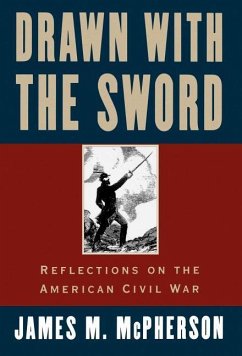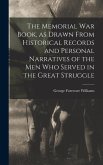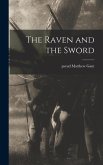This series of essays reveal McPherson's profound knowedge of the Civil War and of the controversies among historians that have existed about aspects of it. He is eminently fair in stating the opposing arguments in each of these controversies, but his own measured opinions are always clearly stated and are invariably persuasive.
Filled with fresh interpretations, puncturing old myths and challenging new ones, Drawn With the Sword explores such questions as why the North won and why the South lost (emphasizing the role of contingency in the Northern victory), whether Southern or Northern aggression began the war, and who really freed the slaves, Abraham Lincoln or the slaves themselves. McPherson offers memorable portraits of the great leaders who people the landscape of the Civil War: Ulysses S. Grant, struggling to write his memoirs with the same courage and determination that marked his successes on the battlefield; Robert E. Lee, a brilliant general and a true gentleman, yet still a product of his time and place; and Abraham Lincoln, the leader and orator whose mythical figure still looms large over our cultural landscape. And McPherson discusses often-ignored issues such as the development of the Civil War into a modern "total war" against both soldiers and civilians, and the international impact of the American Civil War in advancing the cause of republicanism and democracy in countries from Brazil and Cuba to France and England. Of special interest is the final essay, entitled "What's the Matter With History?", a trenchant critique of the field of history today, which McPherson describes here as "more and more about less and less". He writes that professional historians have abandoned narrative history written for the greater audience of educated general readers in favor of impenetrable tomes on minor historical details which serve only to edify other academics, thus leaving the historical education of the general public to films and television programs such as Glory and Ken Burns's PBS documentary TheCivil War.
Hinweis: Dieser Artikel kann nur an eine deutsche Lieferadresse ausgeliefert werden.
Filled with fresh interpretations, puncturing old myths and challenging new ones, Drawn With the Sword explores such questions as why the North won and why the South lost (emphasizing the role of contingency in the Northern victory), whether Southern or Northern aggression began the war, and who really freed the slaves, Abraham Lincoln or the slaves themselves. McPherson offers memorable portraits of the great leaders who people the landscape of the Civil War: Ulysses S. Grant, struggling to write his memoirs with the same courage and determination that marked his successes on the battlefield; Robert E. Lee, a brilliant general and a true gentleman, yet still a product of his time and place; and Abraham Lincoln, the leader and orator whose mythical figure still looms large over our cultural landscape. And McPherson discusses often-ignored issues such as the development of the Civil War into a modern "total war" against both soldiers and civilians, and the international impact of the American Civil War in advancing the cause of republicanism and democracy in countries from Brazil and Cuba to France and England. Of special interest is the final essay, entitled "What's the Matter With History?", a trenchant critique of the field of history today, which McPherson describes here as "more and more about less and less". He writes that professional historians have abandoned narrative history written for the greater audience of educated general readers in favor of impenetrable tomes on minor historical details which serve only to edify other academics, thus leaving the historical education of the general public to films and television programs such as Glory and Ken Burns's PBS documentary TheCivil War.
Hinweis: Dieser Artikel kann nur an eine deutsche Lieferadresse ausgeliefert werden.








